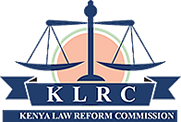(1) This Constitution shall be interpreted in a manner that--
(a) promotes its purposes, values and principles;
(b) advances the rule of law, and the human rights and fundamental freedoms in the Bill of Rights;
(c) permits the development of the law; and
(d) contributes to good governance.
(2) If there is a conflict between different language versions of this Constitution, the English language version prevails.
(3) Every provision of this Constitution shall be construed according to the doctrine of interpretation that the law is always speaking and, therefore, among other things--
(a) a function or power conferred by this Constitution on an office may be performed or exercised as occasion requires, by the person holding the office;
(b) any reference in this Constitution to a State or other public office or officer, or a person holding such an office, includes a reference to the person acting in or otherwise performing the functions of the office at any particular time;
(c) a reference in this Constitution to an office, State organ or locality named in this Constitution shall be read with any formal alteration necessary to make it applicable in the circumstances; and
(d) a reference in this Constitution to an office, body or organisation is, if the office, body or organisation has ceased to exist, a reference to its successor or to the equivalent office, body or organisation.
(4) In this Constitution, unless the context otherwise requires--
(a) if a word or expression is defined in this Constitution, any grammatical variation or cognate expression of the word or expression has a corresponding meaning, read with the changes required by the context; and
(b) the word “includes” means “includes, but is not limited to”.
(5) In calculating time between two events for any purpose under this Constitution, if the time is expressed--
(a) as days, the day on which the first event occurs shall be excluded, and the day by which the last event may occur shall be included;
(b) as months, the time period ends at the beginning of the day in the relevant month--
(i) that has the same number as the date on which the period began, if that month has a corresponding date; or
(ii) that is the last day of that month, in any other case; or
(c) as years, the period of time ends at the beginning of the date of the relevant year that corresponds to the date on which the period began.
(6) If a period of time prescribed by this Constitution for any purpose is six days or less, Sundays and public holidays shall not count when calculating the time.
(7) If, in any particular circumstances, the period of time prescribed by this Constitution ends on a Sunday or a public holiday, the period extends to the first subsequent day that is not a Sunday or public holiday.
(8) If a particular time is not prescribed by this Constitution for performing a required act, the act shall be done without unreasonable delay, and as often as occasion arises.
(9) If any person or State organ has authority under this Constitution to extend a period of time prescribed by this Constitution, the authority may be exercised either before or after the end of the period, unless a contrary intention is expressly specified in the provision conferring the authority.
(10) Except to the extent that this Constitution provides otherwise, if a person has vacated an office established under this Constitution, the person may, if qualified, again be appointed, elected or otherwise selected to hold the office in accordance with this Constitution.
(11) If a function or power conferred on a person under this Constitution is exercisable by the person only on the advice or recommendation, with the approval or consent of, or on consultation with, another person, the function may be performed or the power exercised only on that advice, recommendation, with that approval or consent, or after that consultation, except to the extent that this Constitution provides otherwise.
